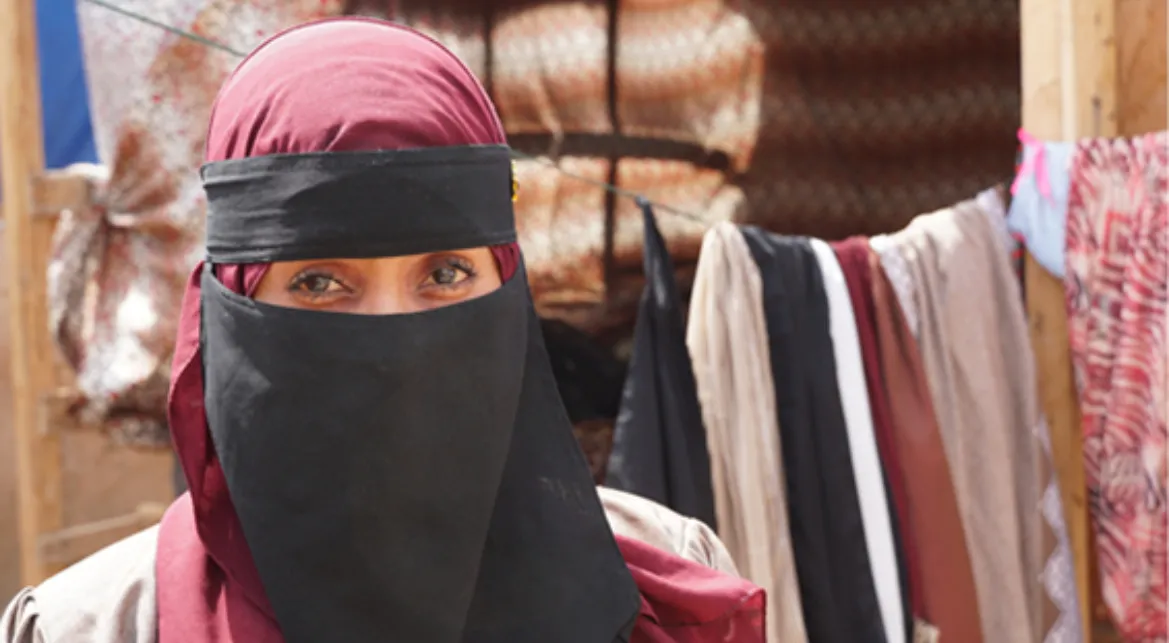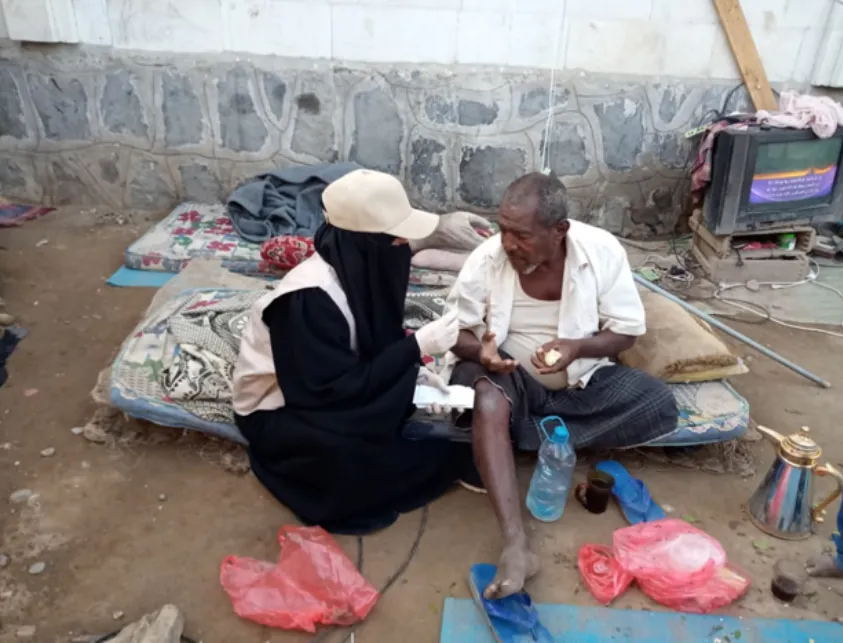In 2017, Yemen experienced the worst cholera outbreak in modern history, with millions of cases in the country. The outbreak, which at one point was said to be killing one person nearly every hour, led to 3,757 deaths. Nearly 60% of cases were among children.
“No matter how hard I try, I’ll never be able to forget the suffering of the young children I observed who have contracted cholera,” Mona says.
The outbreak motivated Mona, 22, to start volunteering with CARE to help stop the spread of disease in the camp for displaced Yemenis where she and her family relocated after fleeing violence in Al Hudaydah governorate in 2016. Days after arriving, Mona’s father became sick and died.


